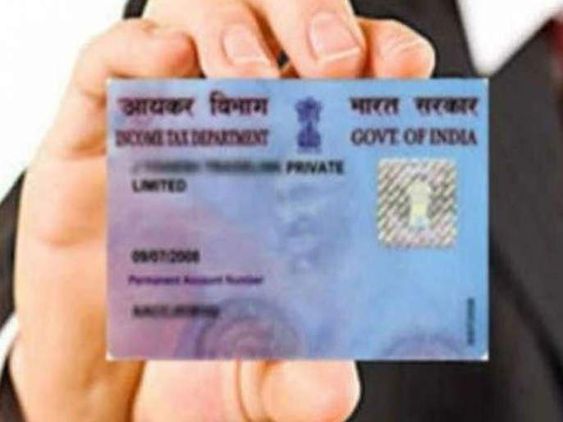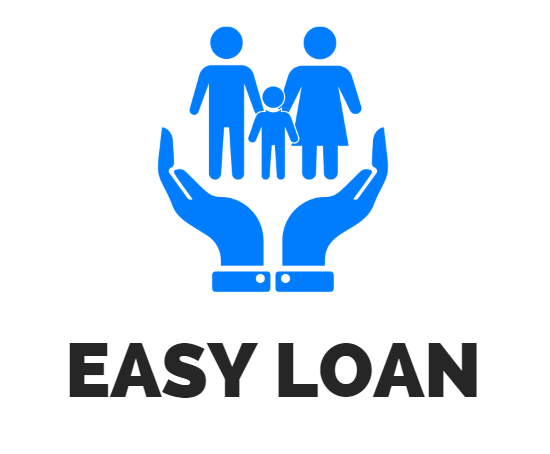Get Personal loans Upto Rs.40 Lakh
PERSONAL LOAN
Easy to process as long as you approach the proper way personal loans
Interest Rate
10.99 - 16% PA Onward
Processing Fee
0% - 3% of the loan amount + GST
Loan Tenure
Up to 7 years
Personal Loan is a short to medium term unsecured loan, which does not require any collateral/security for disbursal. They are generally disbursed in a few hours to a few days with minimal or no paper work at all. A key feature of personal loan is its flexible end-use. Thus, this unsecured loan can be used to meet a variety of needs ranging from emergency medical expenses to planned expenditures such as home renovation, wedding, etc.
Personal Loan in Paisacompare.in is easy to process, as long as you approach the proper way.
Get Loan Starting From Rs. 50K to 15Lacs Only in Paisacompare. Paisacompare.in compare kro book karo provides a Personal Loan.
Loan Starting From Rs. 50K to 15Lacs.
Minimum Documents Required.
Get loan in your Account within 24Hrs.
Interest Rate starting @10.99%
Easy to Approval.
Apply Online.
100% Paperless process.

1. Loan Amount:
2. Interest Rates:
3. Loan Tenure:
4. Fees and Charges:
6. Credit Assessment:
2. Easy Application:
3. Limited Documentation:
4. Unsecured Nature:
5. Flexible Loan Amounts:
6. Versatile Use:
Best personal loans

Banks, credit unions, and online lenders offer personal loans to individuals for various personal purposes. They provide borrowers with a lump sum of money that individuals can use for a wide range of purposes, such as debt consolidation, home improvements, medical expenses, education costs, or unexpected emergencies.
Here are some key features and characteristics of the best personal loans:
Fixed interest rates:
Flexible loan amounts and terms:
Quick approval and funding:
Transparent fees and terms:
Good customer service:
Private Loans

A private loans, also known as a personal loan, is a type of loan provided by a private lender or financial institution, rather than a government entity such as a bank or credit union. Private loans are typically used by individuals to meet personal financial needs, such as paying for education expenses, consolidating debt, making home improvements, or covering unexpected expenses.
Private loans :
The repayment terms for private loans :
Personal loans for salaried

A personal loan for salaried individuals is a type of loan that is specifically designed for individuals who are employed and receive a regular monthly salary. This loan is provided by banks, financial institutions, or online lenders, and it allows borrowers to access funds for various personal expenses, such as medical bills, home renovations, debt consolidation, education expenses, or even a vacation.
1. Eligibility:
2. Loan Amount:
3. Collateral:
4. Application Process:
Personal loan for instant approval

A personal loan instant approval is a type of loan that is processed quickly and provides immediate approval to eligible borrowers. It is designed to meet the financial needs of individuals who require funds urgently for various purposes, such as consolidating debts, paying medical bills, financing a wedding, or making home improvements.
Home credit personal loans

Home Credit is a financial institution that provides personal loans to individuals. A personal loan from Home Credit is a type of unsecured loan, which means that you don’t need to provide any collateral or security to obtain the loan.
1. Consumer Goods:
2. Education:
3. Medical Expenses:
4. Travel:
5. Home Improvement:
6. Debt Consolidation:
Pan Card Loan

Certain financial institutions or lenders in India offer a type of loan against the borrower’s PAN card, known as a PAN (Permanent Account Number) card loan. The Income Tax Department in India issues the PAN card, which is a unique 10-digit alphanumeric identification number.
Here are some key points regarding a PAN card loan:
1. Eligibility:
To avail a PAN card loan, you need to be an Indian citizen with a valid PAN card. Lenders may have specific eligibility criteria related to age, income, employment status, and credit history.
2. Loan Amount:
The loan amount offered against a PAN card can vary depending on the lender and your eligibility. It may range from a few thousand rupees to several lakhs.
3. Purpose:
PAN card loans are typically unsecured personal loans, which means you don’t need to provide any collateral or security. You can use the loan amount for various purposes such as medical expenses, education, home renovation.
4. Documentation:
To apply for a PAN card loan, you will need to submit certain documents such as identity proof, address proof, income proof, bank statements, and a copy of your PAN card. The exact document requirements may vary from lender to lender.
5. Interest Rate and Repayment:
The interest rate for PAN card loans can vary depending on the lender, loan amount, and your creditworthiness. It is usually higher than secured loans due to the absence of collateral.
6. Application Process:
You can apply for a PAN card loan by visiting the lender’s branch, applying online through their website, or using their mobile app. The lender will evaluate your application, verify the documents, and assess your creditworthiness before approving the loan.
7. Credit Score:
Your credit score plays a crucial role in determining your eligibility for a PAN card loan. A good credit score increases your chances of getting approved and may also help you negotiate a better interest rate.
It’s important to note that the specific terms and conditions of PAN card loans can vary among lenders, so it’s advisable to compare different loan offers, understand the interest rates, fees, and repayment terms before making a decision.
Emergency personal loan

An emergency personal loan is a type of loan designed to provide quick financial assistance during unexpected or urgent situations. It is often used to cover expenses that cannot be immediately met with available funds, such as medical bills, home repairs, or car repairs.
Emergency personal loans are typically unsecured loans, which means they do not require collateral. This allows borrowers to obtain funds without pledging any assets as security. The loan amount and terms vary depending on the lender, borrower’s creditworthiness, and other factors.
Here are some key features of emergency personal loans:
1. Quick Approval:
Emergency personal loans are often processed and approved rapidly, allowing borrowers to access funds within a short time frame. Some lenders may offer same-day or next-day funding.
2. Flexible Loan Amounts:
The loan amount available for emergency personal loans can vary widely, ranging from a few hundred dollars to several thousand dollars. The loan amount is typically determined based on the borrower’s income, credit score, and repayment ability.
3. Higher Interest Rates:
Since emergency personal loans are designed for immediate financial relief, they may carry higher interest rates compared to traditional personal loans.
4. Shorter Repayment Terms:
Emergency personal loans often come with shorter repayment terms compared to other types of loans. The repayment period can range from a few months to a couple of years, depending on the loan amount and the lender’s terms.
5. Online Applications:
Many lenders offer online application processes for emergency personal loans, making it convenient for borrowers to apply from the comfort of their homes. Online applications typically require basic personal and financial information.
When considering an emergency personal loan, it’s essential to carefully review the terms and conditions, including interest rates, fees, and repayment options. It’s advisable to compare multiple lenders to ensure you’re getting the best possible terms for your specific financial situation.
Loan For Women

A loan for women is a type of financing specifically designed to meet the needs of women entrepreneurs, professionals, or individuals. These loans aim to empower women by providing them with financial resources to start or expand their businesses, pursue education or training, invest in assets, or meet personal financial requirements.
1. Favorable Terms:
2. Business Support:
3. Empowerment and Equality:
4. Diverse Loan Products:
5. Government and Non-Profit Initiatives:
Apply for Loan

To apply for a loan, follow these general steps:
1. Determine your loan requirements:
2. Research loan options:
3. Check your credit score:
4. Gather necessary documents:
5. Complete the application form:
6. Attach supporting documents:
7. Review and submit the application:
8. Wait for a decision:
9. Loan approval and terms:
10. Accept the loan and sign the agreement:
11. Receive the funds:
I need Personal Loan

A personal loan is a type of unsecured loan that allows individuals to borrow a specific amount of money from a lender, such as a bank, credit union, or online lender, without providing any collateral.
Here are some key features of a personal loan:
1. Unsecured:
As mentioned earlier, personal loans unsecured, which means you don’t have to pledge any assets (like a house or car) as collateral. The lender relies on your creditworthiness to determine whether you qualify for the loan and what interest rate you’ll charged.
2. Fixed Interest Rate:
Personal loans typically come with fixed interest rates, meaning the interest rate remains constant throughout the loan term. This helps borrowers budget more effectively as they can predict their monthly payments.
3. Loan Amount:
The loan amount for a personal loan can vary depending on the lender and your creditworthiness. It can range from a few hundred dollars to tens of thousands.
4. Loan Term:
Personal loans usually have a fixed repayment term, commonly ranging from one to five years. Shorter loan terms result in higher monthly payments but lower overall interest costs, while longer terms offer lower monthly payments but may incur higher total interest charges.
5. Credit Check:
Lenders will assess your credit history and credit score to determine your eligibility and interest rate. Generally, a higher credit score leads to more favorable loan terms.
6. Purpose:
Personal loans are versatile and can used for various purposes, including debt consolidation, home improvements, medical expenses, education expenses, wedding costs, travel, or any other significant expenses.
7. Repayment:
Personal loans are repaid in fixed monthly installments over the loan term. Each installment consists of both principal and interest, with a larger portion allocated to interest at the beginning of the loan term, gradually shifting toward paying off the principal as the loan matures.
It’s essential to carefully consider your financial situation and the terms offered by different lenders before taking out a personal loan. Make sure you can comfortably afford the monthly payments and have a clear plan for repaying the loan on time. Always read the loan agreement thoroughly and understand all the terms and conditions before signing.
Easy Loan

An easy loan is a type of financial product designed to provide quick and convenient access to funds for individuals or businesses. These loans characterized by simplified application processes, minimal documentation, and fast approval times. They are often used to cover unexpected expenses, manage cash flow, or fund short-term projects.
Key features of an easy loan may include:
1. Simple Application:
The application process is typically straightforward and can completed online or through a mobile app. Borrowers required to provide basic personal and financial information.
2. Quick Approval:
Unlike traditional loans that may take several days or weeks to process, easy loans designed for speed. Some lenders offer instant approvals, allowing borrowers to access funds within a short period.
3. Minimal Documentation:
Easy loans often require fewer documents compared to conventional loans. This helps expedite the approval process and reduces paperwork for borrowers.
4. Short Tenure:
These loans are usually short-term in nature, with repayment periods ranging from a few weeks to a few months.
5. Higher Interest Rates:
Due to the convenience and quick access to funds, easy loans may come with higher interest rates compared to traditional loans.
6. Lower Loan Amounts:
The loan amounts for easy loans are generally smaller than those offered by traditional financial institutions. These loans intended to cover immediate financial needs rather than large, long-term expenses.
7. Flexible Eligibility Criteria:
Lenders offering easy loans may have more lenient eligibility requirements, making it easier for individuals with varying credit scores to qualify.
8. Use for Various Purposes:
Borrowers can use easy loans for a wide range of purposes, such as medical emergencies, car repairs, home improvements, or any other urgent financial needs.
